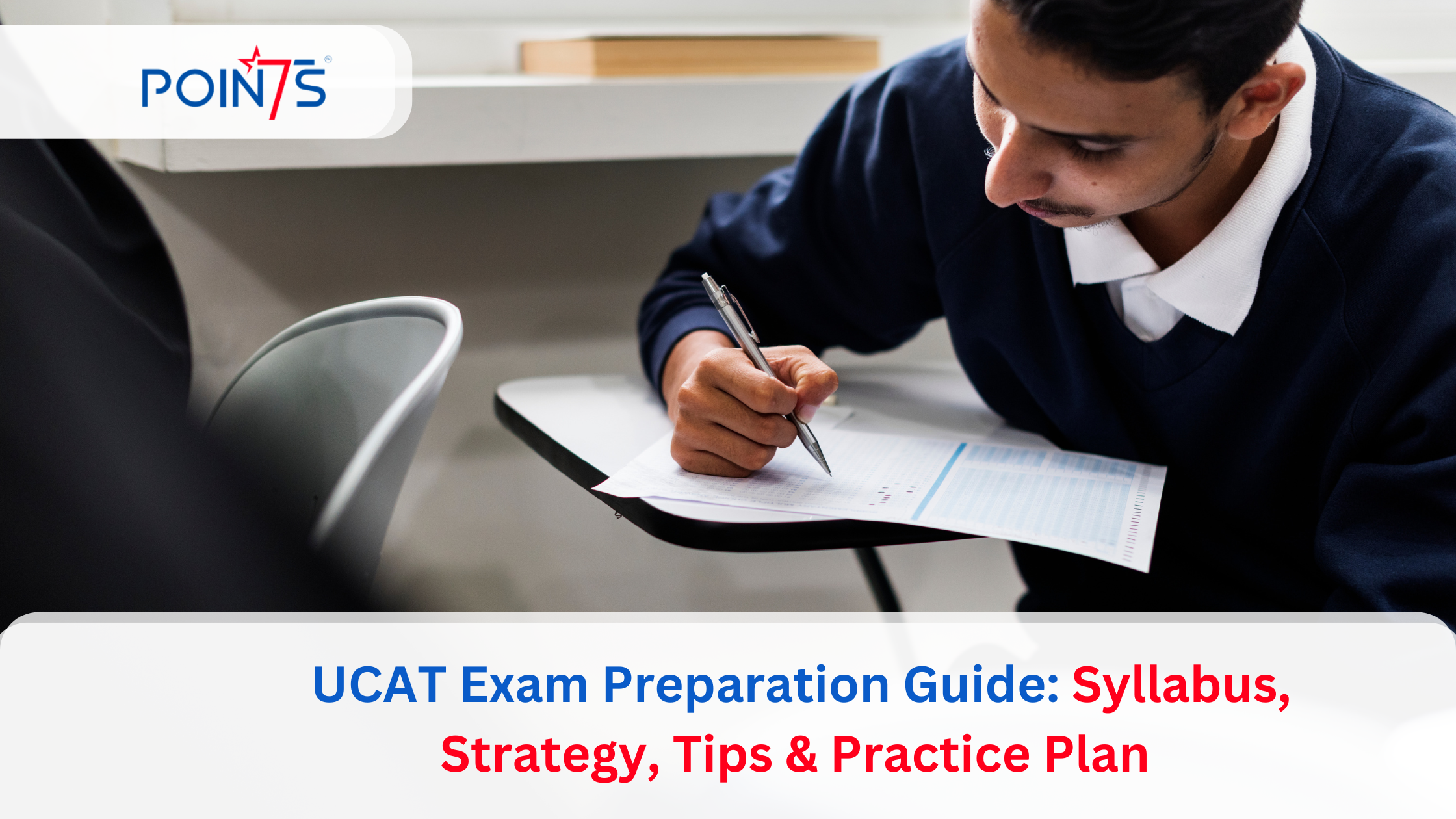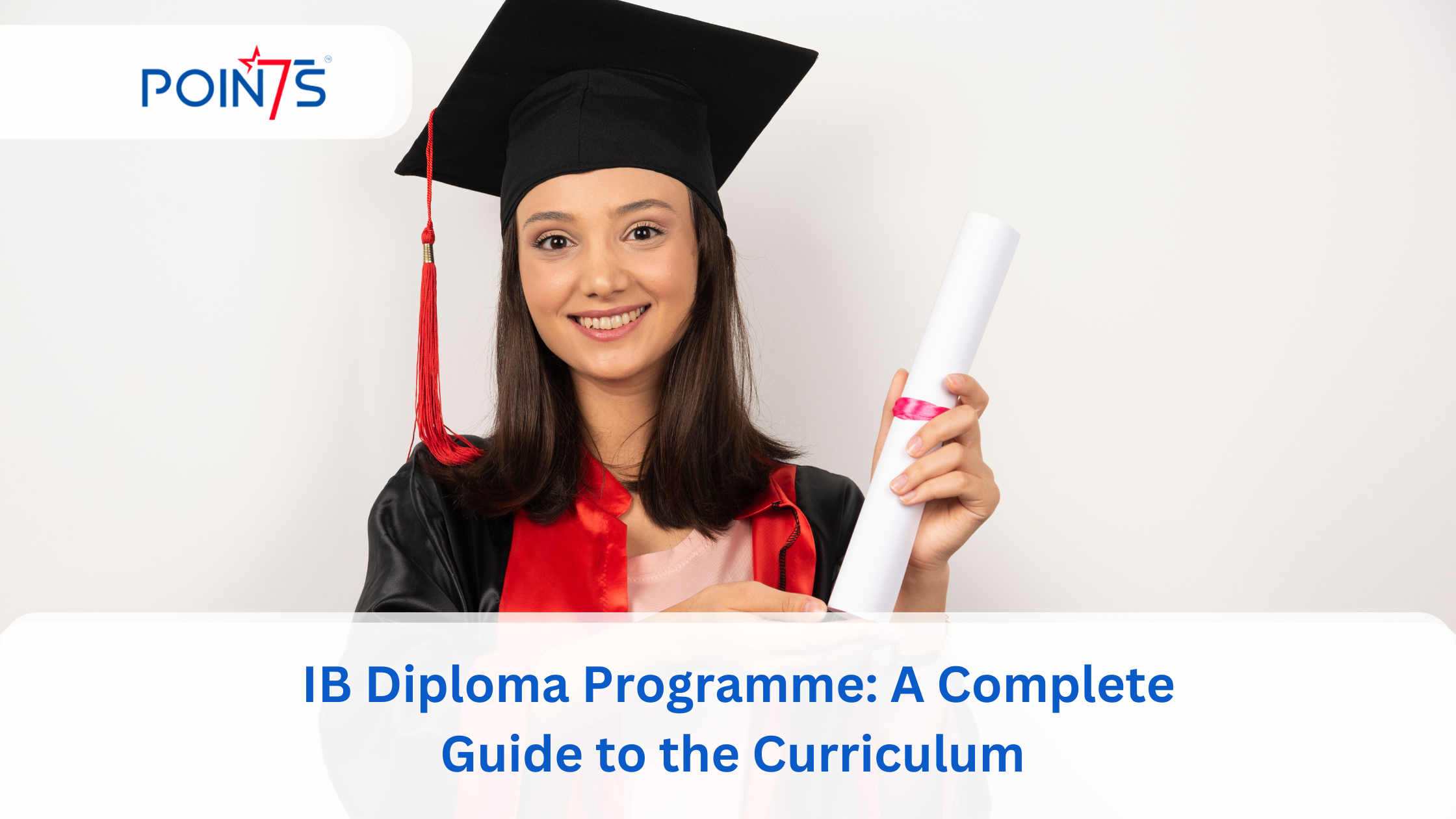Many students get nervous during the IGCSE English exam when they see the word ‘article’ in the question. The pressure to write an article that is structured, engaging, and examiner-friendly can be stressful. Starting the article becomes a challenge, and suddenly, time feels like it’s running out. But writing IGCSE English articles is not that hard if you understand the right steps. Once you learn the format, follow a structure, and practise a few times, this section can become your scoring area in the exam. This guide breaks down the IGCSE English article writing process into easy steps. Also, it will explain how IGCSE tutors from reliable platforms like Points Edulabs can help students stay focused and build writing confidence.
What Examiners Expect in IGCSE English Articles?
To score well in your IGCSE English exam, you need ideas and must know exactly what the examiner is looking for. Article writing tasks are mostly for a magazine, a school newsletter, or a website. So, depending on the question, your task will be to inform, persuade, or share an opinion. The article that you are writing should neither be too casual nor too formal. Before you pick up the pen to start writing, you must first understand what the examiner wants from your writing.
Examiners will assess your writing based on these pointers-
– A clear structure including introduction, body, and conclusion
– Logical organisation of ideas
– Appropriate tone and language
– Ability to engage the reader
– Understanding of the audience and purpose
Step-by-Step: How to Write IGCSE English Articles
Worried about writing an article for IGCSE English? You don’t have to be. With a clear purpose, the right audience in mind, and a balanced tone, you can write the article perfectly. Let’s go through the article writing steps so you feel confident from start to finish.
Read the Article’s Topic Carefully

The first and most important step is to read the question carefully. Many students rush through this part and end up missing key details. You need to identify the purpose of the article and identify if it is informing, persuading, or discussing. You also need to know the target audience or who the readers are like (students, adults, teachers, etc. Give yourself a few minutes for careful reading and understanding the tone that is usually semi-formal.
For example, writing for your school magazine means the readers are your classmates and teachers, so the tone should be friendly yet respectful. If you are unsure how to break down this question, you can also seek IGCSE tutors’ assistance as they will help you understand how to analyse the prompt and identify exactly what’s being asked. This will help students avoid going off-topic.
Plan Your Article First
After understanding the task, don’t start writing immediately. Spend about 5 minutes planning your article. Think about what your main points will be, and usually, 3 to 4 are enough. Then, write down a quick outline so you don’t lose focus while writing. A good IGCSE English article writing plan includes:
– A strong opening idea
– Three body points with examples
– A powerful conclusion
Write a Catchy and Relevant Title
Your title should make someone want to read the article immediately. A great title should not be too long, but should give a clear idea of what is inside. Try using data, questions, or powerful statements. Coming up with titles can be tricky, but with guidance from IGCSE tutors, you will learn techniques that make titles engaging yet topic-appropriate. So, suppose someone is having trouble managing the IGCSE English subject. In that case, they can join IGCSE coaching online like Points Edulab, where the tutors also provide instant feedback on your drafts and help you improve your article writing with confidence.
Start with an Engaging Introduction
The introduction is your chance to grab attention. So, start with something that draws the reader in, such as a question, a personal story, or a surprising fact. Right after that, state what the article will be about so the reader knows what to expect. Here’s a helpful approach for writing an introduction –
– Start with a hook like -“Have you ever felt sleepy during class even after a full night’s sleep?”
– Introduce the topic: “This article will explore why teens are sleep-deprived and what they can do to fix it.”
Write Clear Body Paragraphs
Now that your reader is hooked, it is time to explain your points. Each body paragraph should focus on one idea. Begin with a topic sentence, then explain and support it with a real-life example or reason. But avoid squeezing multiple ideas into one paragraph. These help keep your writing smooth and organised. Also, make sure your points are connected using linking words, like:
– Moreover, In addition, On the other hand
– Firstly, Secondly, Finally
Maintain the Right Tone and Language
Always remember that you are writing for an audience and not just the examiner. So, your tone should be semi-formal, like friendly, respectful, and engaging. In the article writing, avoid slang and overly complicated words. Use simple, powerful sentences and a mix of short and long structures that will draw the reader’s attention. You can even add a rhetorical question or a list to keep things interesting. This balance of clarity and creativity is something IGCSE tutors emphasise in every writing session.
Add Another Point of View (If Suitable)
To make your article more thoughtful, consider including a short paragraph that presents a different opinion. For example, if your article is about the importance of sports, you might mention that some people feel they don’t have time for it, and then explain why even short physical activities are still helpful. This shows that you are considering different sides of the issue.
Adding a different viewpoint shows that you are thinking deeply about the topic, not just stating your ideas. This will make your article feel more balanced and fair. Examiners like it when you show that you can understand other perspectives, even if you don’t agree with them.
End with a Strong Conclusion
A great article needs a memorable finish. So, wrap up your main ideas and give the reader something to think about or do. You could restate your opinion in a new way, ask a final question, or provide a call to action, such as – “So why not switch off your screen and go for a short walk today?” Practising strong conclusions is a key part of the curriculum.
IGCSE tutors at Points Edulab help students craft powerful conclusions by offering expert feedback, examples, and techniques based on the exam format. They teach how to leave a lasting impression on the reader and tie everything together smoothly. With regular practice and personalised support, students gain the confidence to write endings that genuinely stand out.
Avoid These Common Mistakes
Even strong writers sometimes make small mistakes that can cost them marks in the IGCSE exam. That’s why it is essential to know what to watch out for before you start writing. From forgetting a title to using the wrong tone, these common slip-ups are easy to avoid with the proper guidance. Let’s look at the key mistakes that need to be avoided.
– Writing an English article without a plan
– Using bullet points (unless the task clearly allows it)
– Making your language too formal or too casual
– Repeating the same point
– Forgetting to use linking words or a title
Conclusion
Writing an excellent article for the IGCSE English exam becomes much easier when you follow the right steps. From planning and structure to tone and creativity, everything plays a part in helping you score well. But remember, you don’t have to do it alone. Platforms like Points Edulab offer expert IGCSE coaching that focuses on writing skills, including articles. Their tutors provide one-on-one support, clear feedback, and practical strategies to help you improve your writing with confidence. Points Edulab can guide you every step of the way from getting started with ideas to polishing your final draft.
Points Edulab Also Offers IGCSE Tutors Internationally-
IGCSE tutors in the Netherlands
IGCSE tutors in Belgium
IGCSE tutors in UAE
IGCSE tutors in Singapore
FAQs
How should I begin an IGCSE English article?
You should start with an interesting opening. Try using a question, a bold statement, or a short story to grab the reader’s attention. Then clearly introduce the topic.
How long should my article be in the exam?
There is no fixed word limit, but most articles are around 350 to 500 words. Just make sure your article is clear, complete, and well-structured.
Can I write an IGCSE English article in a casual way?
Your tone depends on who you’re writing for. If the article is for students or a school magazine, you can use a friendly tone. But avoid slang or being too casual.
What are some mistakes I should avoid?
Don’t start writing without planning your points. Avoid repeating the same ideas, using too formal or too casual language, and forgetting to add a title or linking words.
How can I improve my article writing skills for IGCSE?
Keep practising and get feedback on your work by joining an IGCSE tutor for the English subject. At Points Edulab, the IGCSE tutors help students improve by giving writing tips, correcting mistakes, and offering personalised guidance.




